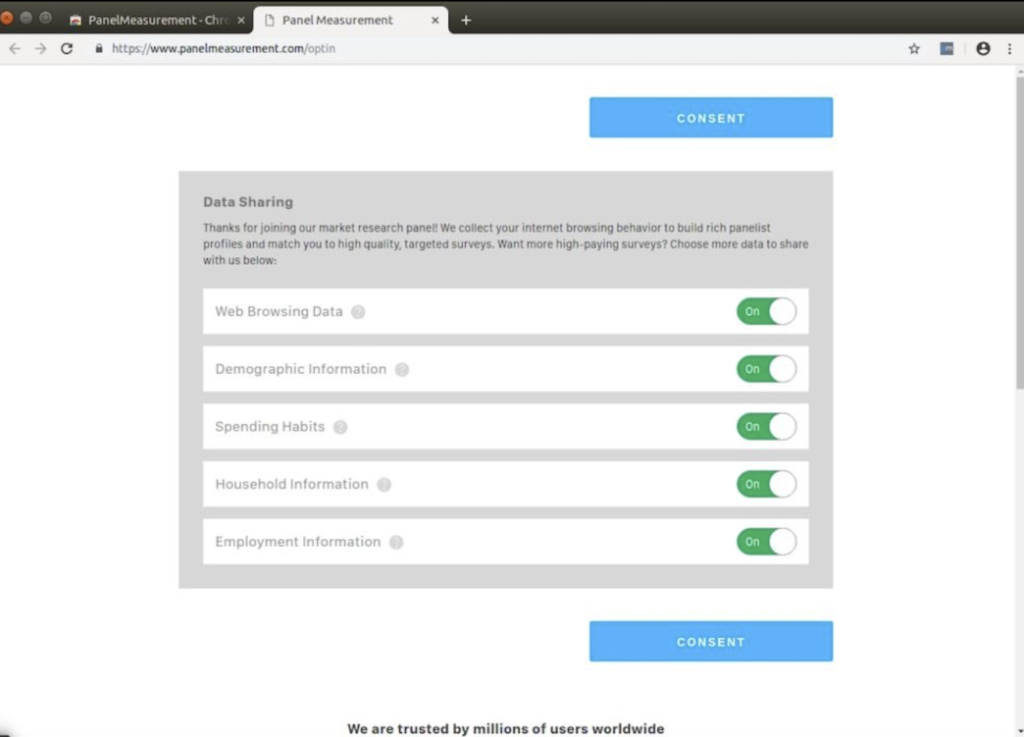They’re selling my information to who?!

While privacy policies can be long and sound like another language with legal jargon, it’s important to take the steps upfront to protect ourselves. While it may seem logical, the more these companies know about you, the more they can tailor things to things you like, companies like PayPal, Microsoft, Apple, Google, Facebook and others share your personal information with dozens of other companies.
These organizations follow our digital behaviors. They chalk it up to enable better survey targeting and other market research activities and even use our private recordings with Alexa and private Facebook photos for “research.”
Browser companies like Nacho Analytics already have hundreds of thousands of tax returns, nest home videos, medical information and more. All made public and available to third parties. While this seems outrageous many companies like this say that they their privacy policies for the browser extensions “do give fair warning that some sort of data collection will occur.”
What makes it worse? Let’s say that the user is fully aware that its data is being shared. But they are using their browser for a third parties’ purpose, does that consent extend to third parties whose sensitive information is viewed by the consenting user and subsequently published? Queue the lawyers.
Furthermore, it completely legal for you to be using a browser for one reason, they then change their terms of service at any time. While you may think an extension is fine at first, there’s nothing stopping it from being turned into spyware in an update, or from being bought by a spyware “vendor” and then turned into spyware.
As times are changing, U.S. lawmakers are trying to stay up with the times. Newly proposed legislation would actually allow for users to see the true value of their data to these third parties. The DASHBOARD act would “provide each user with an assessment of the financial value of their data“ and “give users the right to delete their data from companies’ databases” (Lengen, 2010).
“As marketers use data to create segments and personas, it’s their job to regulate just how much information is collected and be transparent about the ways it’s used” (Steimer, 2018).
References:
Downey, K. (February 10, 2018). Shocking look at how much of your data companies are sharing. Komando. Retrieved from: https://www.komando.com/tips/438386/shocking-look-at-how-much-of-your-data-companies-are-sharing
Goodin, D. (July 18, 2019). My browser, the spy: How extensions slurped up browsing histories from 4M users. ARS Technica. Retrieved from: https://arstechnica.com/information-technology/2019/07/dataspii-inside-the-debacle-that-dished-private-data-from-apple-tesla-blue-origin-and-4m-people/
Lengen, S. (July 11, 2019). How much is your data worth to tech companies? Lawmakers want to tell you, but it’s not that easy to calculate. The Conversation. Retrieved from: http://theconversation.com/how-much-is-your-data-worth-to-tech-companies-lawmakers-want-to-tell-you-but-its-not-that-easy-to-calculate-119716
Marvin, R. (May 6, 2019). Are you worried about smart home devices listening to you? PC Mag. Retrieved from: https://www.pcmag.com/news/368113/are-you-worried-about-smart-home-devices-listening-to-you
Stiemer, S. (May 1, 2018). The murky ethics of data gathering in a post-Cambridge analytics world. American Marketing Association. Retrieved from: https://www.ama.org/marketing-news/the-murky-ethics-of-data-gathering-in-a-post-cambridge-analytica-world/

3 Responses to My Browser, The Spy 👀